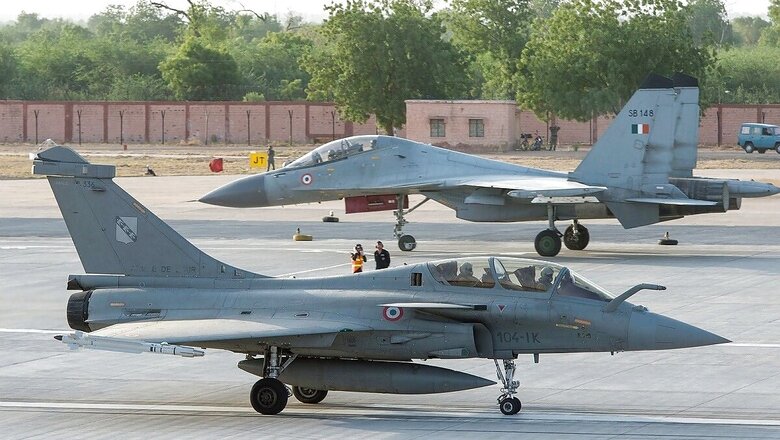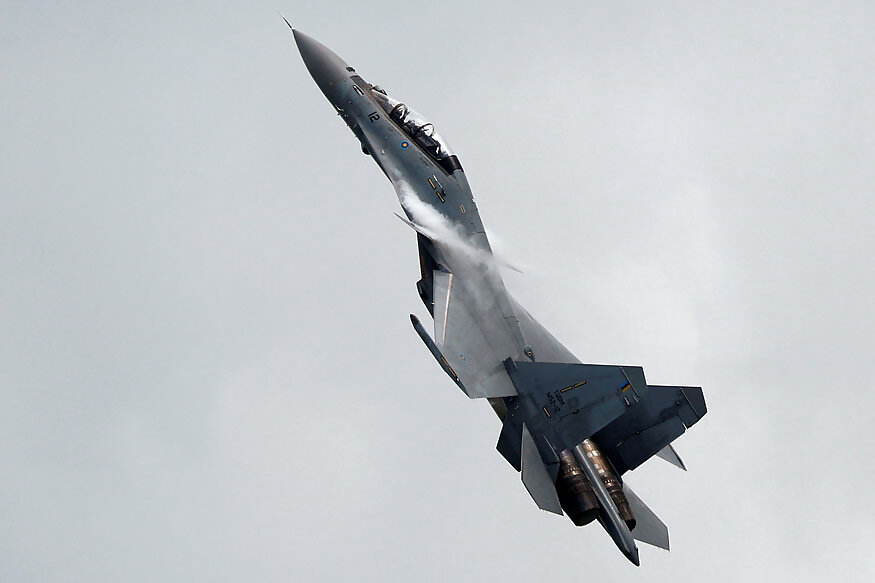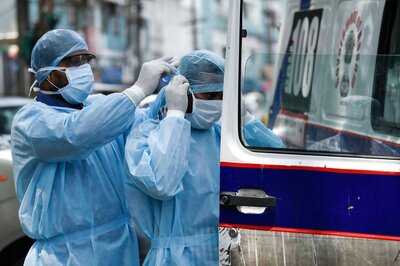
views
The first batch of five Rafale jets have started their 7000-km long journey to India from the airbase in France. The two-day journey of the much-awaited Dassault-made fighter jets will conclude in Ambala, Haryana, where they will officially join the Indian Air Force on July 29.
The fighter jets will have a stop over at UAE's Al Dhafra Air Base and there will be air-to-air refueling on the way before the twin-engine multi-role, nuclear capable fighter aircraft reach their final destination.
India has been long awaiting these advanced Dassault Rafale jets to enhance their firepower exponentially, especially after the Balakot episode.
Speaking on the sidelines of the Indo-French joint Air Exercise Garuda-VI, Indian Air Force Air Chief Air Marshal RKS Bhadauria (Then Vice Air Chief) warned enemies, including Pakistan of deadly combination of Sukhoi Su-30MKI and Rafale MMRCA fighter jets.
The first 5 #IAF #Rafales have taken off from Dassault Aviation Facility, Merignac, #France today morning. These 5 include 3 single-seater and 2 twin-seater aircraft. The ferry is planned in two stages & is being undertaken by IAF pilots. 1/2#RafaleJet pic.twitter.com/0TWU5zlgvQ — Indian Air Force (@IAF_MCC) July 27, 2020
"Once the Su-30MKI and the Rafale start operating together, it will be a potent combination against our adversaries, be it Pakistan or anybody else. It will be a potent capability. Any adversary would be worried about such a combination," said Bhadauria during the Garuda exercise. Bhadauria was the head of the Indian team that negotiated with France for the deal to acquire 36 Rafale jets in 2016. "For any such (February 27-type) operation by Pakistan, they would have losses much more. We would have larger weapons and we would have better weapons. The attrition that we will inflict would be very very high," Vice Chief added. Prime Minister Narendra Modi has also said that Rafale could have inflicted more damage on the terror camps had Rafale been in the force. In March 2019, PM said that the entire country is feeling the absence of Rafale fighter jet aircraft. The Russia-made Sukhoi Su-30MKI is currently the most potent fighter jet in the IAF's arsenal and experts believe that combined with the Rafale, India's airpower will be increased exponentially. Here's a brief look at both the aircrafts:
#WATCH Rafale jets taking off from France to join the Indian Air Force fleet in Ambala in Haryana on July 29th. pic.twitter.com/6iMJQbNT9b — ANI (@ANI) July 27, 2020
Dassault Rafale
India had signed an inter-governmental agreement with France in September 2016 for procurement of 36 Rafale fighter jets at a cost of around Rs 58,000 crore. The aircraft is capable of carrying a range of potent weapons and missiles and the first squadron of the aircraft will be deployed at Ambala air force station, considered one of the most strategically located bases of the IAF. The Indo-Pak border is around 220 km from there. The second squadron of Rafale will be stationed at Hasimara base in West Bengal. The Rafale is a modern fighter jet known for its agility, speed, weapon holding capacity and attack capability. The Dassault Rafale has a delta wing design and is capable of g-forces as high as 11g (in case of emergency). The Rafale is available in both single and dual seating cabin (India ordered 28 single and 8 dual seater Rafale).

Sukhoi Su-30MKI
The Sukhoi Su-30MKI is the most advanced fighter jet in operation with the Indian Air Force and is the primary air to air and air to ground strike machine. Also known as Flanker (NATO), the Su-30 MKI is built in India by HAL under a license agreement with Russia’s Sukhoi. The Su-30MKI is exclusively used by India and there’s an estimate that IAF has 290 operational units of 30MKI till now. The first unit was inducted in 2002. The Sukhoi Su-30MKI has a top speed of Mach 2 (2120 kmph) and has a maximum takeoff weight of 38,800 kg. The jet can carry a wide range of equipment from radars to missiles, bombs and event rockets.



















Comments
0 comment